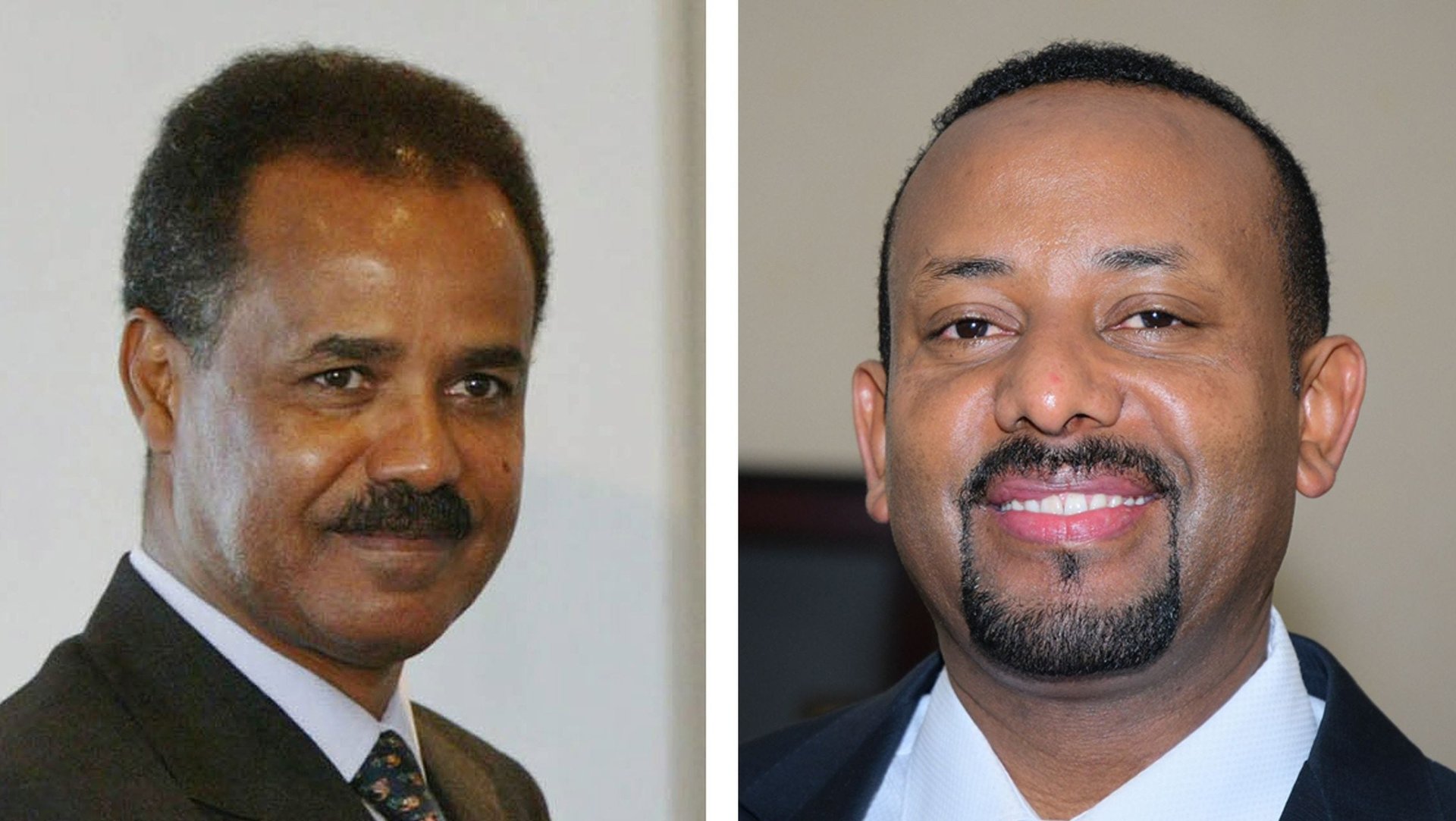The giddy excitement that marked Ethiopia and Eritrea’s historic summit
Intimate hugs, smiles, laughter, and firm handshakes marked the first meeting in almost two decades between the leaders of longtime adversaries Eritrea and Ethiopia.


Intimate hugs, smiles, laughter, and firm handshakes marked the first meeting in almost two decades between the leaders of longtime adversaries Eritrea and Ethiopia.
On Sunday (July 8), prime minister Abiy Ahmed of Ethiopia and president Isaias Afwerki met in the Eritrean capital Asmara in a bid to normalize relations between the two Horn of Africa nations. After decades of hostility, the Ethiopian delegation was welcomed by crowds in the streets, signs of the growing rapprochement that has taken place in recent weeks. Following discussions between Abiy and Isaias, the two leaders announced that flights will resume, embassies will be reopened, and that landlocked Ethiopia would be able to utilize Eritrea’s seaports. For the first time in two decades, a direct international telephone connection between Ethiopia and Eritrea was also restored.
The summit “heralds a new era of peace and cooperation,” Yemane Meskel, Eritrea’s minister of information, wrote on Twitter. Fitsum Arega, Abiy’s chief of staff also noted the visit offered an opportunity to bring lasting change in the region. “The yearning for peace was palpable and we will decidedly move forward for the good of our people,” he wrote.
Abiy’s visit comes just weeks after an Eritrean delegation led by foreign minister Osman Saleh concluded a historic three-day visit to Addis Ababa. The momentous visit came after Ethiopia’s ruling coalition said in early June it would fully accept the terms of an agreement signed in 2000, which ended the war between the two nations over a disputed border. Over the years, diplomatic attempts to get both sides talking have faltered, leading to years of no-war, no-peace stalemate.
But since coming to power, Abiy has taken a number of bold steps aimed at mending relations with both domestic opposition and regional neighbors. Recognizing the 2000 peace deal with Eritrea was one of them, with the decision promising to bring about a peaceful conclusion to the political fight that has rattled on for decades.
Besides normalizing relations between the two bitter foes, it isn’t yet clear what this will mean for Eritreans. As an isolated nation with a repressive regime, Isaias has ruled Eritrea since it gained independence from Ethiopia in 1991. The one-party state’s human rights track record remains abysmal, as it regularly subjects its citizens to “slave labor” conditions, arbitrary arrest, and harsh treatment. And because of the repression, many Eritreans flee to neighboring countries, Europe and Israel, making them one of the top refugee contributing nations in the world. Resuming relations with Addis Ababa means a key justification for Isaias’s iron rule will be removed, hence diminishing his regime’s hold.
Isaias, however, cast aside any doubts about the deal on Sunday, saying the two nations will now “work as one.”